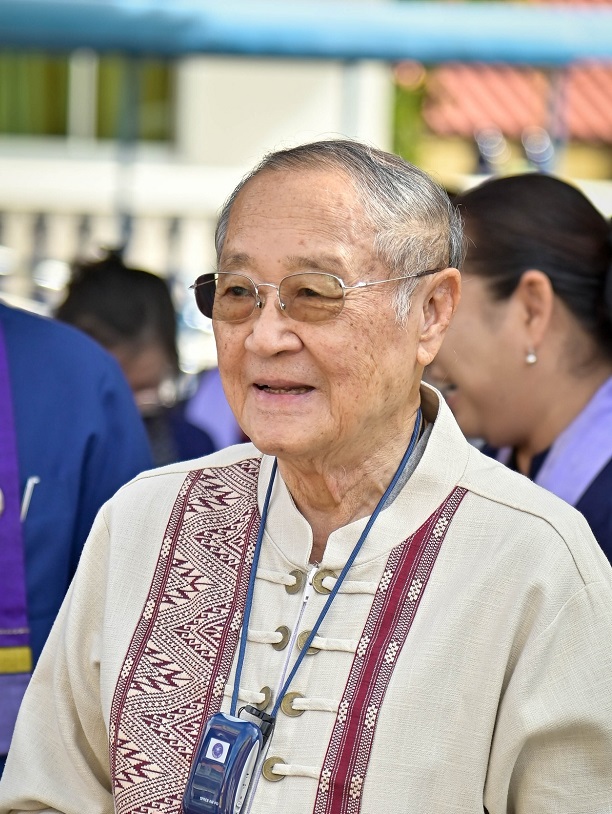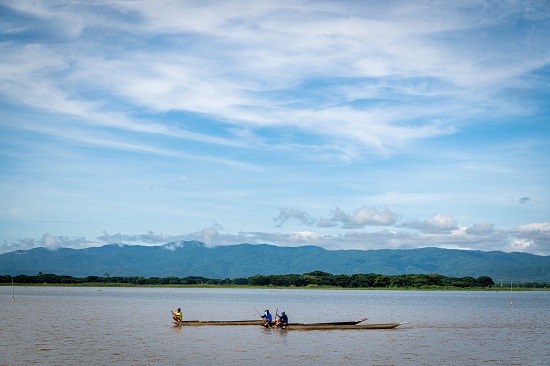- Home
- News
- Executive News
- Executive News
- Member and Secretary-General of the Chaipattana Foundation Travels to follow up on the Progress of Operations of Kwan Phayao Lake Development Action Plan in Phayao Province
Member and Secretary-General of the Chaipattana Foundation Travels to follow up on the Progress of Operations of Kwan Phayao Lake Development Action Plan in Phayao Province

On 7-8 August 2024, Mr. Sumet Tantivejkul, Member and Secretary-General of the Chaipattana Foundation traveled to follow up on the progress of operations of Kwan Phayao Lake Development Action Plan and participated in the ceremony to investigate the fate of Kwan Phayao at Wat Tun Tai, Phayao Province.






Kwan Phayao Lake covers an area of more than 12,000 rai, utilized for agriculture, fishing, and water supply production. Consequently, the upstream forest areas are destroyed, leading to soil accumulation and a significant proliferation of water hyacinth. These factors have contributed to a decline in water quality, resulting in poor water quality, flooding and drought. Due to the aforementioned issues, local communities and agencies in Phayao Province have come together to seek solutions. In 2010, a delegation met with Mr. Sumet Tantivejkul, member and secretary-general of the Chaipattana Foundation, to discuss the problems and request to convey their concerns to Her Royal Highness Princess Maha Chakri Sirindhorn for consideration to include Kwan Phayao Lake as a royal initiative project.



The Chaipattana Foundation presented the concerns to the royal court, and Her Royal Highness graciously accepted Kwan Phayao Lake as part of a royal initiative project focused on environmental and water resource management. The Chaipattana Foundation serves as the central coordinating agency, developing plans and providing consultation for the project. Various organizations are collaboratively addressing these issues and have jointly set up an “Action Plan for the Development of Kwan Phayao.” This plan encompasses aspects related to watershed forests, tributary streams, water resource management, and environmental concerns, ensuring a comprehensive approach that involves participation from all sectors of the community.
